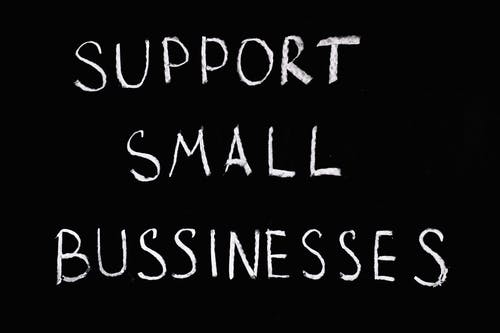SBA Loans Are Failing Black-Owned Businesses
According to the latest data during the height of the COVID-19 pandemic, Black-owned businesses experienced declines of 41%, and the PPP loans Loans provided through the government’s Paycheck Protection Program for small businesses, administered by the Treasury Department and the SBA, reached only 20% of eligible firms in areas with the highest densities of Black-owned firms. Because Black-owned firms had shaky cash positions, weaker banking relationships, and pre-existing funding gaps, they had little cushion entering the crisis. In the 30 counties considered particularly vulnerable to Black-owned business closures, most counties saw only 15%-20% of their total businesses receive PPP loans. Prior to the COVID-19 pandemic
The Small Business Administration has decreased its loans given to Black-owned businesses by 84% since peaking before the Great Recession, according to research by the Cleveland Business Journal. In 2019, Black businesses received 3% of the Small Business Administration’s $23.2 billion in loans. The country’s four biggest banks — Chase, Bank of America, CitiBank, and Wells Fargo — made a combined 334 loans to Black-owned businesses in 2019, a 91% decrease compared to 2007.
Venture Capital and Black Founders
Despite 2021 gains, venture capital going to Black founders remains proportionally tiny. In the first half of 2021, startups overall raised a record-breaking $147 billion. Only 1.2 percent of it went to Black founders. In 2020, Black founders received 0.6 percent of all venture capital deployed. Since the COVID-19 pandemic and the public killing of George Floyd and the global demonstration that followed American venture capital-backed founders has risen to a dismal 1.2 percent and the percentage of Blacks in decision-making roles within Venture Capital isn’t much better. This racial or cultural basis has limited their profit potential. This bias creates barriers to early-stage capital, and the lack of representation in the investing space reinforces this racial or cultural bias that has led to systems of racism that destroy opportunity within communities of color but also hurt American innovation and productivity also.
Black Buying Power
African-American buying power has seen impressive gains since the end of the last economic downturn, jumping from $961 billion in 2010 to an estimated $1.3 trillion in 2018. Since 2000, the African-American market has seen a 114 percent increase in buying power. The boost is the result of a surge in black-owned businesses, increased educational attainment, and booming population growth. The percentage of African-Americans who completed college continues to rise (23 percent in 2017, up from 17 percent in 2000), and the population is growing at 22.7 percent since 2000, faster than the national average of 16.3 percent. The youthfulness of the African-American population skews the group’s buying power downward, as a larger share of the population has yet to hit their peak earning years. This dramatic rise in Black Purchasing Power coupled with investment crowdfunding has the potential to transform Black-owned businesses and Black Communities
The Benefits of Creating an Equibutal System for Black-Owned Businesses
According to a report by McKinsey, healthy Black-owned businesses could be a critical component for closing the United States’ Black–white wealth gap, which we project will cost the economy $1 trillion to $1.5 trillion (in 2018 dollars) per year by 2028. If existing Black-owned businesses reached the same average revenue as their white-owned industry counterparts (excluding publicly held companies), the result would be an additional $200 billion in recurring direct revenues, which could equal about $190 billion in additional GDP or a roughly 1 percent increase in 2017 GDP. An investment in more business ecosystems that provide Black business owners equitable access to resources and opportunities can unlock part of the $1 trillion to $1.5 trillion in annual GDP that would come from closing the racial wealth gap and creating over 1 million new jobs.
The Investment Crowdfunding Transformation
One percent of the 1.3 trillion 2018 African-American purchasing power would be over $10 billion and if these dollars were intentionally invested through investment crowdfunding it would be a game-changer for Black communities, it would close the racial wealth gap. This racial wealth gap between Black and white Americans has been persistent and extreme. It is obviously rooted in the history of the United States, but it persists and grows based on many policies that continue today. But more importantly, it would benefit US economic activity. The investment crowdfunding transformation can be a path forward for Black-owned businesses and Black communities. According to George Cook, Co-founder/CEO of crowdfunding platform Honeycomb, 11% of all their campaigns have been run by Black founders. About 12% of crowdfunding is for Black-owned companies, and about 50% of the campaigns are successful according to SeedInvest and The MainVest reports that about 60% of Black or Latino crowdfunding campaigns are successful.
The Non-Financial Benefits of Crowdfunding
There are many hidden benefits to investment crowdfunding besides the capital raised to fund the business such as:
- Crowdfunding turns your customers into brand advocates
- Crowdfunding strengthens your relationship with the community
- Crowdfunding generates marketing buzz for your business
- Crowdfunding can lead to revenue growth
- Crowdfunding connects you to a network of potential collaborators
Key Takeaways
Investment Crowdfunding is a great way to raise funds for your offer, but you may find that in the process of running your successful campaign you are able to grow your brand reach and brand awareness, receive an immense marketing and PR benefit along with the other benefits mentioned in the above post. Before you overlook the new kid on the block, take a long and hard look at the crowd investing in your next real estate development. This is what I call the Return on Crowd. If you would like more information on investment Crowdfunding please join our Facebook group Crowdfunding for the Culture.

